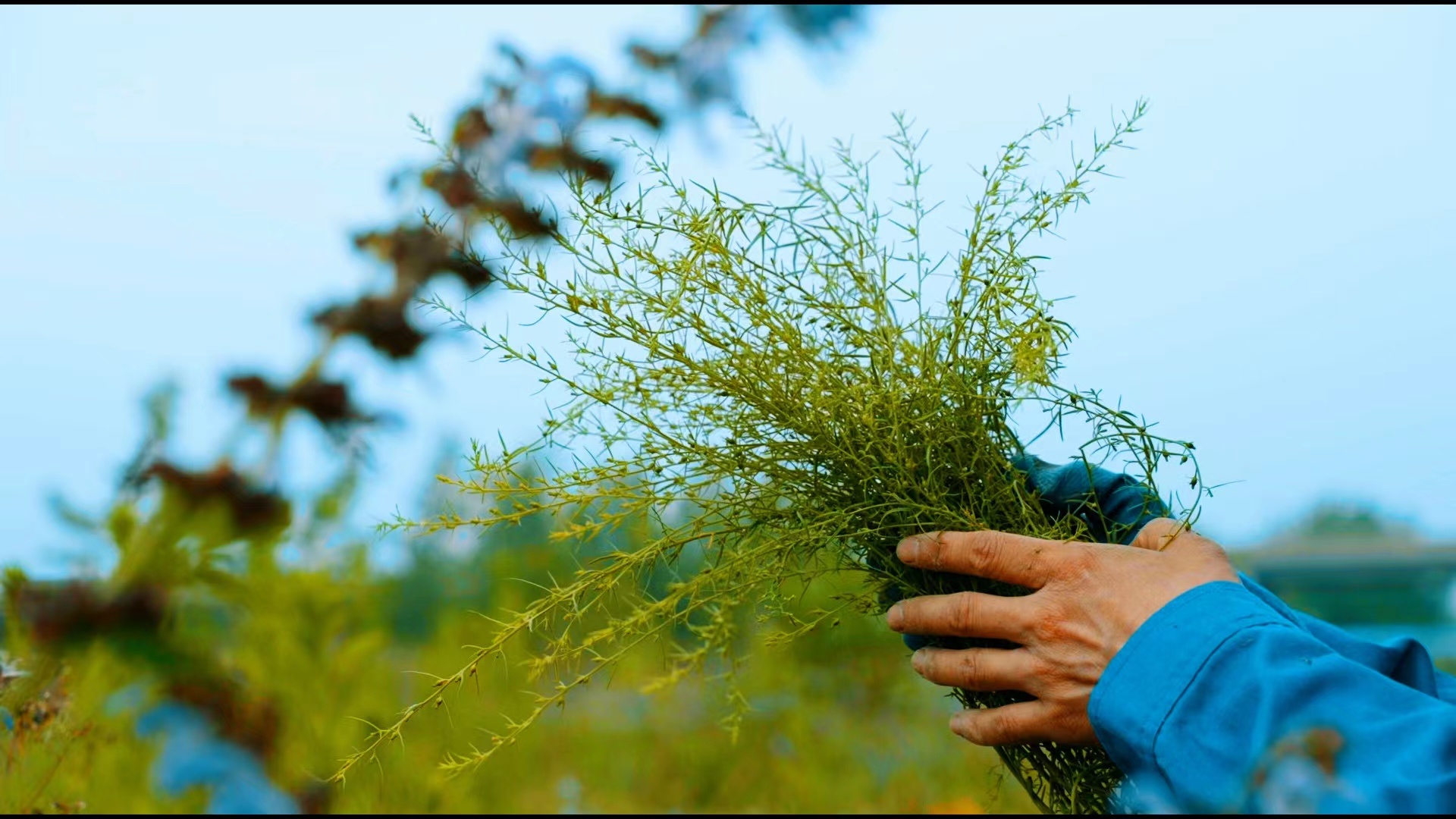
Thesium chinense is also known as milky grass, pomegranate, fine beard grass, etc. It is a perennial semi-parasitic herb of the sandalwood family, occurring on hillside grasses, fields, and sandy margins. The eastern part of China is distributed in Anhui, Henan, Hubei, Jiangxi, Hunan and Zhejiang. Sin. Micro bitter, cold. Clearing heat and detoxifying, tonifying kidney and astringent essence. In many medical works, there are records of Thesium chinense, such as the "Materia Medica Tu Jing": the main milk, but also smooth blood, very good qi. Summary of Chinese Medicine: Treatment of head sores and cervical lymphadenitis. "National Compilation of Chinese Herbal Medicine": Qingrejiedu, Jieshu. For enteritis, lung abscess, tonsillitis, heat stroke, acute mastitis, lymph node tuberculosis, acute cystitis. New Pharmacology: included as an anti-infective botanical drug. Treatment of pneumonia, lung abscess, mastitis, tonsillitis, upper respiratory tract infection, digestive tract, urinary tract and surgical infections. It is effective for diseases caused by Staphylococcus aureus, pneumococcus, Catalococcus, and Streptococcus A, such as mastitis, pneumonia, lung abscess, tonsillitis, and upper respiratory tract infection. Its dried whole grass as a valuable wild medicinal material is listed as the Anhui provincial government key protection of genuine medicinal varieties.

Bairui granules are taken from the unilateral Chinese herbal medicine Thesium chinense, with a slightly bitter taste and a flat nature. Bairui Granules flavored with 0.7% stevidin to make sugar-free granules, sweet, good taste, high acceptance of children, the same for diabetic patients.

Bairui preparation is a unilateral preparation of Thesium chinense, other proprietary Chinese medicines are generally composed of multi-flavor Chinese herbal medicines, and Thesium chinense is a pure wild plant medicine to avoid the hidden dangers of heavy metals and pesticide residues produced by artificial cultivation. The pharmacological effects and mechanism of the components of Thesium chinense kaempferol are clear, and other adverse reactions that may be caused by the combination of multi-flavor Chinese medicinal materials and other drugs are avoided.

There is no name for hand, foot and mouth disease in traditional Chinese medicine theory. This disease is named after fever, herpes or rash on hands and feet. Some severe cases can cause encephalitis, meningoencephalitis, brainstem encephalitis, encephalomyelitis, neurogenic pulmonary edema, pneumonia and other nervous system and respiratory and circulatory system injuries, which are more common in spring and summer. The principle of national guidance for the treatment of hand, foot and mouth disease is mainly symptomatic treatment. Can take antiviral drugs and heat-clearing and detoxifying Chinese herbal medicine and vitamin B, C and so on. Bairui Granules has a significant effect on the treatment of hand, foot and mouth disease. According to the Chinese Experimental Prescription, Wu Qian, director of the Department of Pediatrics of the Second People's Hospital of Hainan Province, recommended Bairui Granules with ribavirin to treat common cases of hand, foot and mouth disease in children. Antiviral, antipyretic and symptom-improving effects can significantly improve clinical efficacy and shorten the course of disease.

Common cold, viral cold, fever, acute and chronic pharyngitis, tonsillitis, bronchitis, rhinitis, pneumonia, lung abscess, mumps, otitis media, enteritis, hand, foot and mouth disease, thrush, vaginitis, skin abscess, etc.

Bairui granule in the treatment of upper respiratory tract infection, cold and fever and other symptoms, pure natural plant medicine, infants and young children, safe and efficient.
The recommended dosage of Bairui Granules for children is: for children aged 0-3, 1/2 bag each time, 3 times a day; for children aged 3-12, 1-1/2 bag each time, 3 times a day; for children and adults over 12 years old, take 1 bag each time, 3 times a day.


